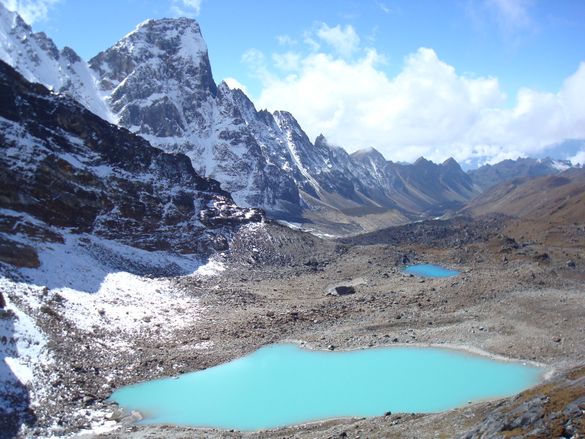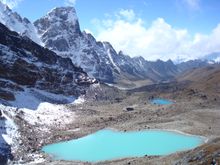 10 Oct 2022
10 Oct 2022
Tags: Bhutan, Bhutan Treks, trek Bhutan, Trans Bhutan Trail, Himalayas, Himalaya Trekking, The Himalayas, Himalaya, Responsible Travel, Responsible Tourism, Sustainable Travel, Sustainable Tourism, sustainable development

Devon, UK: In July 2022 Tourist Council of Bhutan (“TCB”) announced they would reopen for tourists in September 2022. Yet, the sting in the tail was the daily visa fee known as the Sustainable Development Fee (“SDF”) would increase from US$65 per person per day to US$200. We do not support the higher SDF being applied to all trips in Bhutan at the same rate. This goes against Bhutan's policies of sustainable travel and Gross National Happiness.
Bhutan opened to tourists in 1974 and since then has followed a high-value low volume approach. We understand the ethos and agree that this strategy has worked well for the country. But, it is the size of the increase that is the issue, and the fact that all types of trips have the same SDF rate. This pricing structure encourages shorter holidays in Bhutan with a higher carbon footprint per day. It discourages longer trekking itineraries into the Bhutanese Himalayas.
All travellers have to fly to Bhutan. As a result, there is a very high carbon footprint in getting there. With a flat rate of US$200 per day Bhutan is promoting shorter itineraries as most people can only afford to visit for a short hotel-based tour. Longer itineraries such as our 34-day Lunana Snowman trek should have a lower SDF per day. Long and “slow” travel like the Snowman trek is one of the most sustainable trips. After all, trekking is mainly human and horse-powered! Travelling into the most remote corners of Bhutan spreads the impact and benefits of tourism away from Thimphu, Paro, and Punakha.
The decision by TCB to increase the SDF was not discussed with stakeholders, such as Bhutanese tour companies and guides (or international operators like us). There has been little assessment of the impact on their lives, well-being, and happiness. This should have happened under Bhutan's Gross National Happiness ("GNH") policy. It is devastating news for many people in the travel industry in Bhutan. The number of travellers able to afford to visit Bhutan will be much lower than pre-Covid times. After 2 ½ years of no work due to Covid, the new SDF policy is a shock for many people involved with travel in Bhutan.
It is worth noting that the government through the King's Relief Fund helped the tourism sector during the pandemic by giving financial support. Individual trekking guides and travel operators both benefited and this was key for their financial survival. The Mountain Company also donated money in the early stages of the Covid pandemic through donations received from our clients. New initiatives like the Trans Bhutan Trail (“TBT”) will also help give work to some guides but it is of no interest to us as we focus on trails of the high mountains of the Himalayas.
The Mountain Company has organised treks in Bhutan since 2005. Our Managing Director, Roland Hunter, led groups on the 34-day Lunana Snowman trek in 2008 and 2011. We have organised eleven successful Snowman treks and hopefully, our group trekking in Bhutan at the moment will not be our last! We have developed an extensive portfolio of the best treks in Bhutan. This includes Druk Path, Dagana & Lawagu Pass, Haa Valley Pilgrims, Chomolhari Base Camp, Laya Gasa, Kitiphu Ridge, and the Lunana Snowman.
As a responsible trekking operator, we have worked with the same trekking crew since 2008. We have trained our Bhutanese guides and cooks to work on our multi-day Himalayan treks. The future for our Bhutanese trek crew is now looking very uncertain. There are social issues in Bhutan and much of this comes from a lack of employment opportunities. There will be many unemployed trekking guides if this policy is not modified soon. This side of Bhutan is rarely reported by international media. Instead, they project the Himalayan Shangri La image promoted by Bhutan's clever destination marketing.
We are grateful to get the lower SDF for our Lunana Snowman trek currently in Bhutan. However, for our 2023 Snowman trek, we have fourteen trekkers signed up on the condition we can obtain the lower SDF. Every member of this group has confirmed they will not travel to Bhutan at the higher SDF rate. This would increase our Snowman price from US$9,995 up to US$13,550 plus the international flights to Bhutan. In that case, we will not be able to provide work to our Bhutanese trek crews. Instead, our trekkers will book onto our remote, camping treks in Nepal, India, and Pakistan.
Our suggestion is that the SDF rate should be calculated based on the carbon footprint of the holiday. Now that would be truly sustainable tourism from a country that is the world's first carbon-negative country. Without a change in SDF policy, the future is looking very bleak for our trekking guides in Bhutan.
- ENDS -
Media: Roland Hunter | Managing Director| 01647 433880 | roland@themountaincompany.co.uk
About The Mountain Company
The Mountain Company is an award-winning team of holiday experts to the Himalayas and Karakoram. We organise treks, expeditions, and tours in Nepal, Bhutan, Pakistan, and India (Ladakh and Sikkim). Our passion is for exploring very remote regions including sections of The Great Himalaya Trail.
Winners of AITO's Tour Operator of the Year in both 2018 (Gold) and 2015 (Bronze). We are members of AITO, ABTOT and hold an ATOL license.
We have offices both in the UK and in Nepal so during peak season we offer unique on-the-ground support from Kathmandu.
Founded in 2004 and is still managed today by Roland Hunter FRGS. Roland has led groups on most of our trips throughout the Himalayas and the Karakoram. He has also summited Mount Everest (8,848m) and Mount Makalu (8,463m).
Our website is at https://www.themountaincompany.co.uk/

